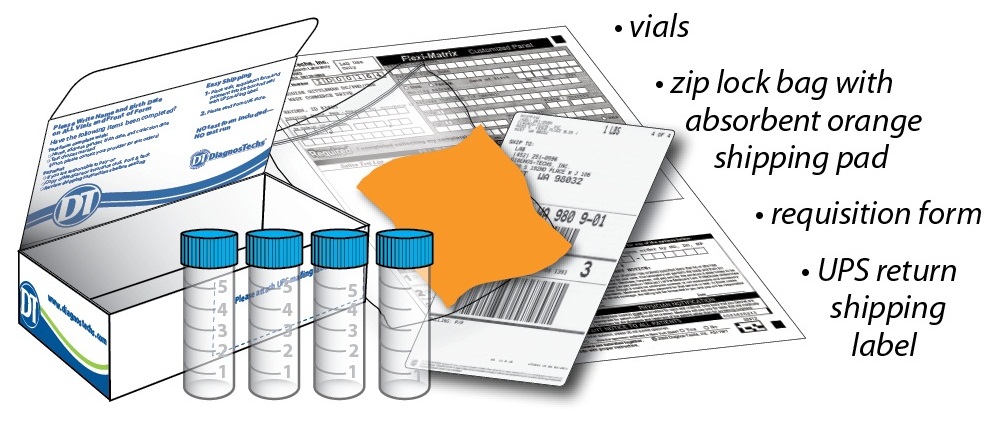Leaky Gut / Intestinal Permeability Test
Leaky Gut / Intestinal Permeability Test
Couldn't load pickup availability
Intestinal Permeability Assessment is a powerful noninvasive gastrointestinal test assessment of small intestinal absorption and barrier function in the bowel. The small intestine uniquely functions as a digestive/absorptive organ for nutrients as well as a powerful immune and mechanical barrier against excessive absorption of bacteria, food antigens, and other macromolecules. Both malabsorption and increased intestinal permeability ("leaky gut") are associated with chronic gastrointestinal imbalances as well as many systemic disorders.
Increased intestinal permeability (leaky gut) of the small intestine can:
- Increase the number of foreign compounds entering the bloodstream
- Allow bacterial antigens capable of cross-reacting with host tissue to enter the bloodstream, leading to auto-immune processes
- Enhance the uptake of toxic compounds that can overwhelm the hepatic detoxification system and lead to an overly sensitized immune system
Leaky gut has been observed in a range of disorders such as:
- Inflammatory Bowel Disease (IBD)
- Food allergy
- Inflammatory joint disease
- Chronic dermatologic conditions
Studies have demonstrated that increased intestinal permeability can contribute symptoms in patients with ankylosing spondylitis, fibromyalgia, chronic fatigue, chemical sensitivities, food allergies, yeast overgrowth, chronic pain, food allergies, and rheumatoid arthritis.
Decreased permeability can cause malabsorption, subsequent malnutrition, and failure to thrive. In certain disease states of the small intestine, such as gluten-sensitive enteropathy, permeability to large molecules may increase while permeability to small molecules decreases - a result of damage to the microvilli. As a result, nutrients become even less available to assist in the detoxification of antigens flooding the system.
Possible causes of increased intestinal permeability (leaky gut) include:
- Intestinal infection
- Ingestion of allergenic foods or toxic chemicals
- Deficient secretory IgA
- Trauma and endotoxemia
- NSAIDs
- Yeast overgrowth
The Intestinal Permeability Assessment gastrointestinal test directly measures the ability of two non-metabolized sugar molecules to permeate the intestinal mucosa. The patient drinks a premeasured amount of lactulose and mannitol. The degree of intestinal permeability or malabsorption is reflected in the levels of the two sugars recovered in a urine sample collected over the next 6 hours.
Test Type: Urine Test
HOW IT WORKS
- Purchase the test kit online
- Look for the follow-up email in your inbox containing instructions on submitting your birth-date
- Once we receive your reply, we will mail your test kit to you. Test kits should arrive in 2-3 business days.
- Perform the urine test at home following the detailed step by step instructions
- Drop the test kit off at your local UPS using the included paid label
- We will receive your results 2 weeks after the lab receives your samples, at which point Dr Murphree will review
- You receive your results and personalized recommendations from Dr. Murphree.
[Turnaround time app. 3 weeks] 
(This test is also not available for order in the state of New York, Thank you.)
Share



